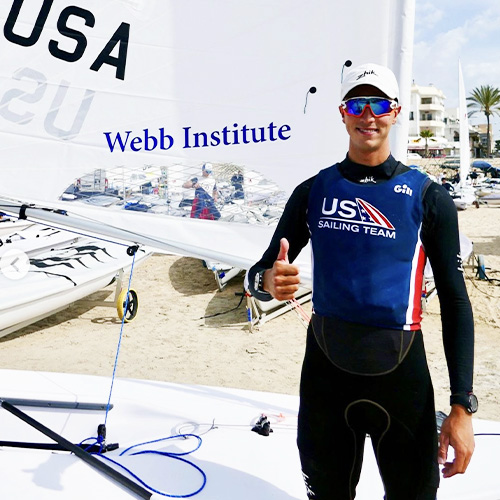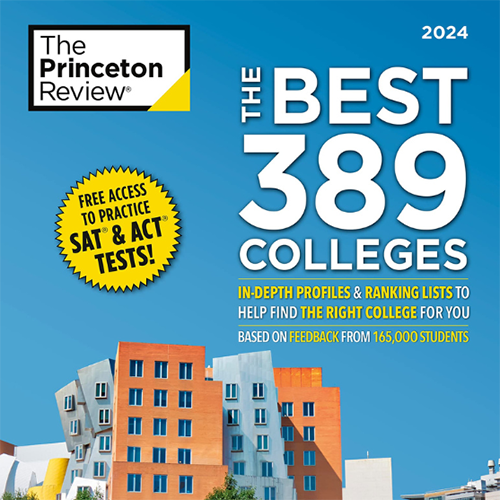How did you become interested in sailing, and what led you to compete at such a high level?
I got introduced to sailing through a learn to sail summer camp program at Bay of Quinte Yacht Club in Canada where I grew up. During the summer of 2016, they offered a racing camp during which I started sailing Lasers (now ILCAs). I had so much fun at the regatta that culminated the camp, I really wanted to continue racing. My parents started signing me up for some local regattas, which is when a coach suggested I join the Lauderdale Yacht Club Racing Team. Anywhere from 20 to 30 boats would show up to practice every weekend. I went to high school near Atlanta, so I had to drive or fly down to Lauderdale to get to weekend practices. At first, I would go to practice once every two or three weeks, but by my junior year, I was in Lauderdale every weekend. At one point, I even took my SAT exam in Lauderdale to not miss practice. I was sailing during all my breaks and holidays. During my last two years of high school, I was ranked 1st Laser Radial (ILCA6, youth class) in North America and made it onto the US Sailing Olympic Development Team. After graduating, I transitioned into the ILCA7, the Olympic class. It was a tough transition as it was like learning to sail a new boat. While at Webb, I managed to work my way into the top 3 ILCA7 in the US putting me into a position to qualify for the 2024 Olympic games.
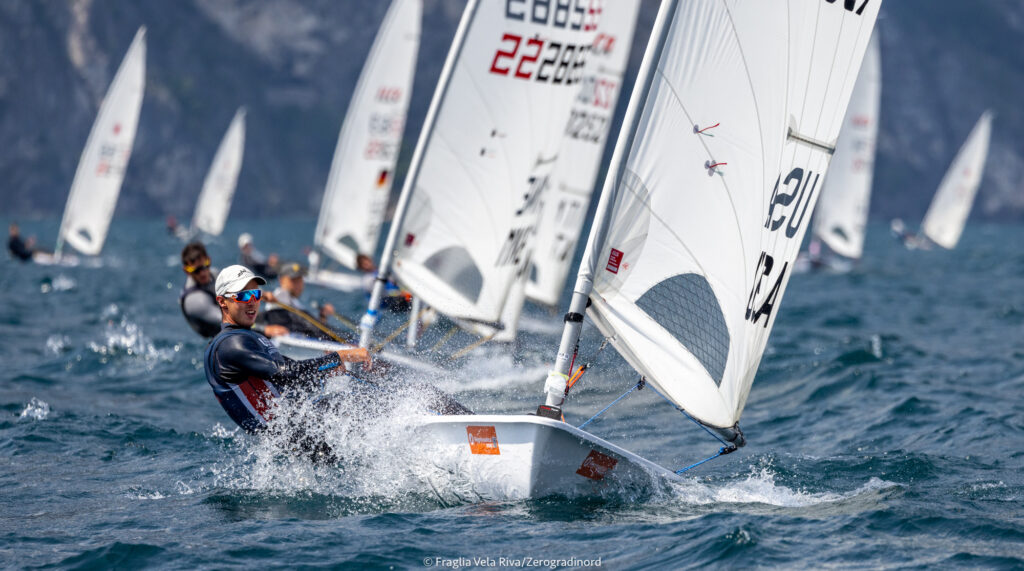
Can you tell us about your journey from being at Webb to your ongoing campaign to qualify for Olympic sailing?
Given the academic workload at Webb, my goal during the Webb semester was focus on my fitness while trying to maintain my sailing skills the best I could. A typical week consisted of at least 2 sailing sessions, weightlifting 3-4 days, and about 80 miles cycling with a local team. I also joined some friends on a few weekends during the semester for some ILCA racing at American Yacht Club. Fortunately, President Martecchini, Dean Werner, and the faculty are extremely supportive of my sailing, and even allowed to take time off to train and compete.
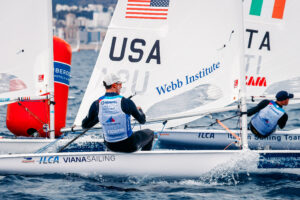
What are some of the challenges that you face in training for the Olympics?
Campaigning for the Olympics is a logistical, planning, and funding nightmare. I don’t stay in the same country for more than two weeks at a time before I travel to the next. I have to make sure my equipment stays in order and everything I need gets to the next place. I’d like to take this moment to thank my parents and my coach. Without them it would be impossible.
Of course, performing and improving is another challenge. The skill gap between the U21 and Senior fleet is massive. Competing against the best in the world is a very humbling experience. Dealing with the stress and pressure of personal expectations of improvement, especially when extremely tired from training and competing can be very challenging. Mentally draining – resilience.
How does it feel to represent both Webb and the USA- on a global platform?
I am very proud to represent Webb and the USA on a global platform. It is great to know that I have my college supporting and cheering for me, and it adds motivation to do my best while training and competing!
What advice would you give to other student-athletes?
The main advice I would give is that everything comes down to time management and prioritizing. Especially with Webb’s demanding academic workload, fitting in the necessary training while leaving some free time available is very tricky but totally achievable.
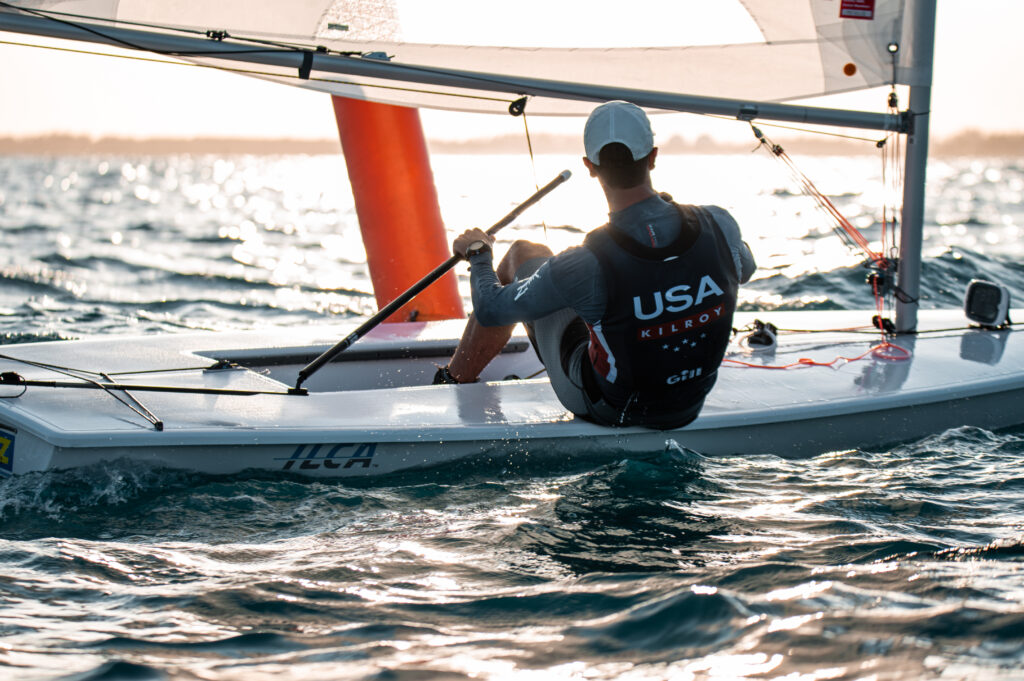
How has Webb impacted you on your journey to the Olympics?
I’d say Webb has helped me greatly improve my stress and time management skills. Since Webb’s academic load can be quite stressful at times, I’ve found that it has improved my resilience and work efficiency, especially when having to complete assignments and exams while competing at regattas at the same time.
I also find it funny when the things we learn at Webb for designing and building container ships apply to my sailing. Webb has helped me get a better understanding of my boat and look at my sailing from a more technical and analytical perspective, which gives me an edge over my competitors. I am very grateful for the invaluable skills I have learned at Webb.
What are your plans for when you graduate from Webb?
I would like to use my Webb degree to get involved in professional sailing like the America’s Cup or SailGP and design faster, more advanced boats. I also have my sights set on campaigning for LA 2028.
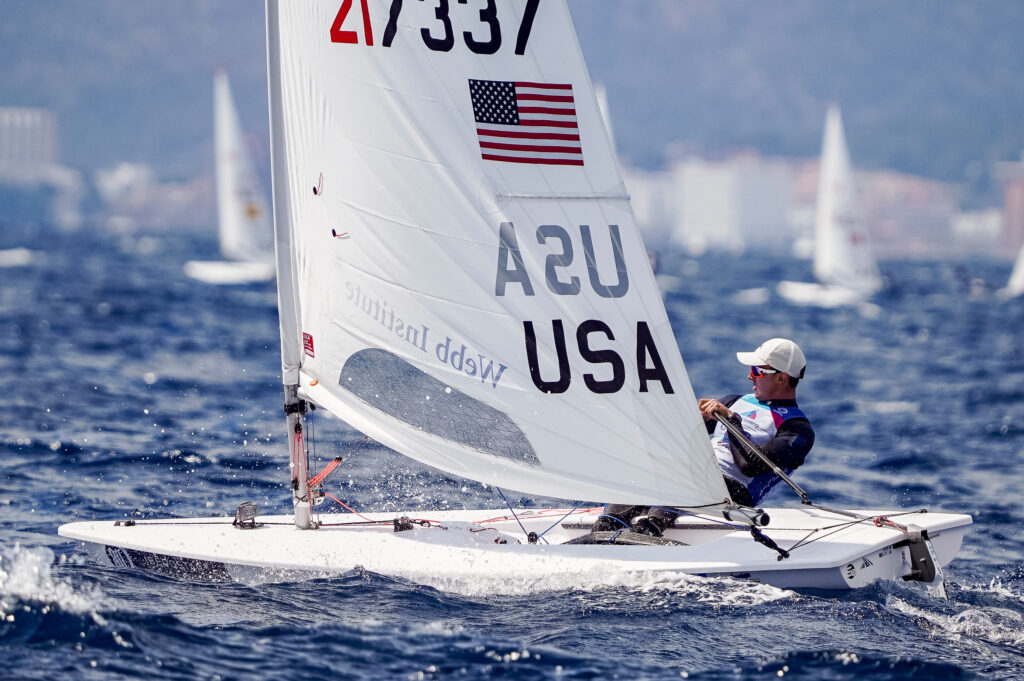
Webb Institute Named One of America’s Best Colleges by The Princeton Review
The Princeton Review named Webb Institute as one of the top 389 best colleges for 2024, standing out among more than 4,800 universities across the United States. Webb is featured in The Princeton Review’s annual college guide, “The Best 389 Colleges,” which lists top-tier colleges in academics, student life, and campus environment.
Webb is one of the most selective colleges in the U.S., with an acceptance rate of 19%. Known for its rigorous academic program in naval architecture and marine engineering, Webb graduates attend top graduate schools like Harvard and MIT, build careers with leadership positions in the corporate world, launch their own successful companies, or design innovative ships and yachts.
“We are honored to be included in The Princeton Review’s list of the best colleges,” said Webb President Mark Martecchini. “This recognition is a testament to the hard work and dedication of our faculty, students, and staff. We provide our students with a world-class engineering education that prepares them to lead and succeed in their chosen career paths.”
Webb provides a full tuition scholarship to every student and additional financial support for those with demonstrated need. This earns Webb a consistent ranking as one of The Princeton Review’s “Best-Value” colleges in the United States. Webb has been featured in The Princeton Review’s “Best Colleges” list for many of the years since the publication’s inception in 1992.
Explaining the selection process, Robert Franek, Editor in Chief of the Princeton Review stated, “We’ve curated the 389 best colleges in the United States, focusing on extraordinary academics. Our 50 ranking lists cover everything from career services, financial aid, campus life, to student experiences. Webb offers a rigorous academic program at an exceptional value; Webb graduates are highly sought after in the maritime industry, making Webb such a unique place.”
Webb’s unique Winter Work internships give students hands-on industry experience, with work/travel opportunities across the United States and around the world. Webb has a 100% placement rate in graduate school or industry, at high-ranking salaries.
Webb is honored by the Princeton Review’s recognition and looks forward to hosting Princeton Review on campus this fall to get a better understanding of what makes Webb a special place.
The Princeton Review’s “Best Colleges” list for 2024 can be found here: https://www.princetonreview.com/college-rankings/best-colleges

